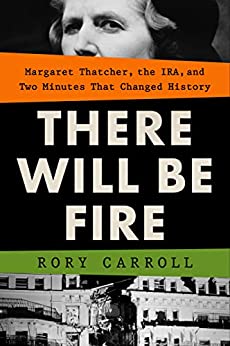More on this book
Community
Kindle Notes & Highlights
by
Rory Carroll
Read between
December 3 - December 13, 2023
The future prime minister delivered a statement of intent in 1935 when she was ten years old and won a poetry-reciting competition. “You were lucky, Margaret,” her school’s deputy headmistress told her. Young Maggie’s retort would echo down the ages. “I was not lucky,” Thatcher said. “I deserved it.”
An informal IRA survey found up to 90 percent of volunteers joined not through ideological conviction but to hit back after security force violence or harassment. They viewed violence as a legitimate response because if the state broke the law, then there was no law.
The IRA had split into two factions in 1969 at the outset of the Troubles. The Officials wanted to contest elections and ally with left-wing radicals. The Provisionals—known familiarly as the Provos—rejected electoral politics and claimed the mantle of the Easter 1916 rebels who had proclaimed a provisional government. By 1972, the Provos were ascendant. Magee chose the Provos.
Magee felt he was in a cloud looking down at this strange other self—exile, husband, father, breadwinner. The conflict raged in his head, possibly a symptom of what would today be recognized as post-traumatic stress.
The most famous example in the twentieth century was Terence MacSwiney, a Lord Mayor of Cork who died in a British jail in 1920 after refusing food for seventy-four days.
Death by starvation is agonizing. Hunger spasms last weeks, then there is fatigue and a freezing coldness as surface body fat is used up. Talking becomes difficult. After losing protein and fat reserves, the body consumes nonessential muscle. Vitamin deficiencies lead to blindness. There is vertigo and nausea. In the final stage, the body devours the heart and diaphragm.
The “Armalite and the ballot box,” as it became known, would come to define Provo policy. Delegates overwhelmingly endorsed it. They also voted down a policy of federalism, called Éire Nua, long advocated by Ruairi Ó Brádaigh
“In her mind, it helped to create the dangerous idea that she acted best when she acted alone,” noted her biographer Charles Moore.


